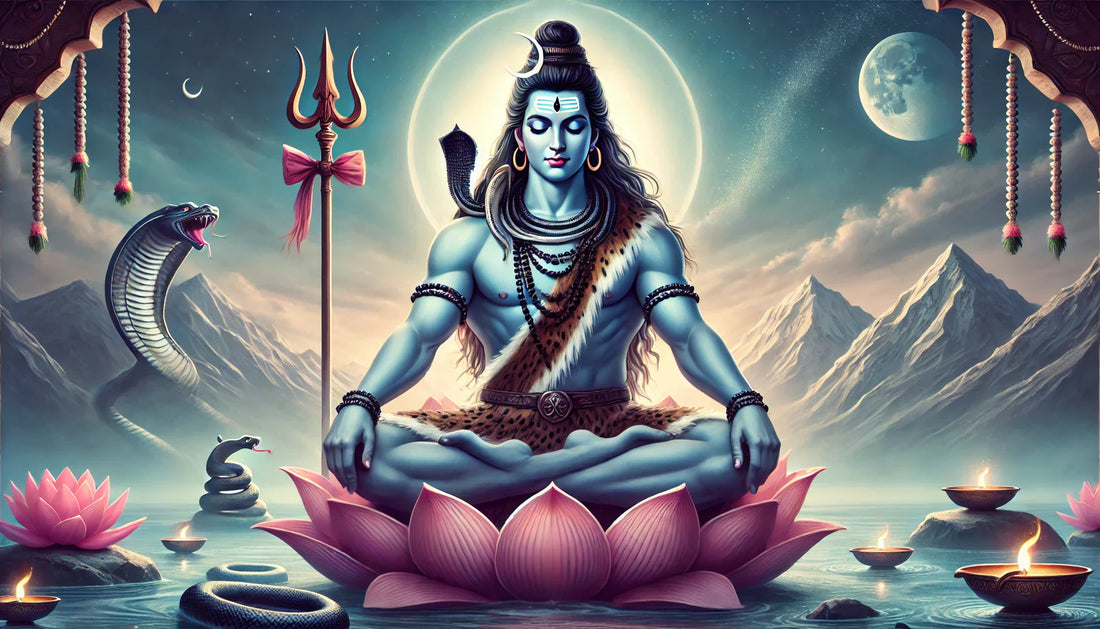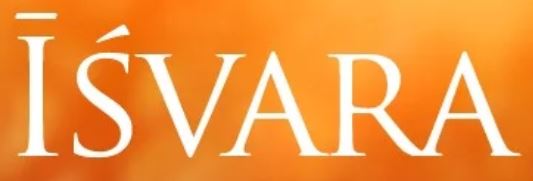
Lord Shiva Mantras and Sholkas
For centuries, the profound impact of ‘mantras’ has been acknowledged and harnessed by many. In Vedic times, warriors invoked the power of these mantras to create desired effects on the opposing forces. Beyond their historical use in warfare, mantras are also known to positively influence behavior and mindset.
What are Mantras?
Mantras are sacred syllables or phrases, typically in Sanskrit, that are chanted or repeated to generate powerful spiritual effects. These mantras hold deep spiritual significance and are believed to profoundly influence our daily lives.
Lord Shiva
Shiva, meaning "auspicious," is one of the principal deities in Hinduism. As part of the trinity known as the ‘Tridev,’ Shiva is revered as the destroyer of evil. While Lord Brahma is seen as the creator and Lord Vishnu as the preserver, Lord Shiva plays the crucial role of dissolving negativity and facilitating transformation.
Shiva Chants and Mantras
There are numerous shlokas, chants, and mantras dedicated to Lord Shiva, each with its own unique significance and power. Hindu mythology mentions several potent Shiva mantras, and if chanted with sincere devotion, they are believed to please Lord Shiva, bringing about desired outcomes. Here are six of the most powerful and easily memorable Shiva mantras.
Mahamrityunjaya Mantra
The Mahamrityunjaya Mantra, also known as the Tryambakam Mantra or the Death-Conquering Mantra, is one of the most revered and potent mantras dedicated to Lord Shiva. ‘Mrityunjaya’ translates to "victory over death," and this mantra is specifically significant for those seeking to overcome the fear of untimely death and alleviate physical suffering. Due to its sacred nature, this mantra should be chanted with the utmost respect and at appropriate times.
Shiv Mantra:
ॐ त्र्यम्बकं यजामहे सुगन्धिं पुष्टिवर्धनम्।
उर्वारुकमिव बन्धनान् मृत्योर्मुक्षीय माऽमृतात्॥
Om Tryambakam Yajamahe Sugandhim Pushtivardhanam
Urvarukamiva Bandhanan Mrityor Mukshiya Maamritat
Meaning:
“We meditate on the three-eyed one (Lord Shiva), who permeates and nourishes all like a fragrance. May he liberate us from the bondage of worldly attachments and death, bestowing us with the nectar of immortality.”
Rudra Mantra: An Invocation of Divine Power
The Rudra Mantra is a potent invocation dedicated to Lord Rudra, a fierce and powerful form of Lord Shiva. In this aspect, Shiva is often associated with destruction, transformation, and renewal. The Rudra Mantra is chanted to seek divine protection, eliminate obstacles, and receive blessings that guide one through life's challenges.
Significance of the Rudra Mantra
Lord Rudra represents the raw, untamed energy of the universe—the force that can both destroy and create anew. By invoking Rudra, devotees seek not only protection from negative influences but also the strength to transform adversity into growth and renewal. The mantra is particularly effective in warding off negative energies, providing clarity of mind, and bringing peace and harmony to the reciter.
The Rudra Gayatri Mantra
One of the most revered forms of the Rudra Mantra is the Rudra Gayatri Mantra. This sacred chant combines the power of Rudra with the universal vibration of the Gayatri Mantra, a highly auspicious and spiritually uplifting mantra in Hinduism. The Rudra Gayatri Mantra is believed to fulfill the desires of those who chant it with devotion and sincerity.
The mantra is as follows:
“Om Tatpurushaya Vidmahe Mahadevaya Dheemahi Tanno Rudrah Prachodayat”
Translation and Meaning
- Om: The primordial sound, representing the universe and the divine consciousness.
- Tatpurushaya Vidmahe: We contemplate the Supreme Being in the form of Rudra.
- Mahadevaya Dheemahi: We meditate on Mahadeva, the Great God, the highest of all deities.
- Tanno Rudrah Prachodayat: May that Rudra inspire and illuminate our minds.
Benefits of Chanting the Rudra Gayatri Mantra
- Fulfillment of Desires: Regular chanting is believed to help fulfill sincere desires by invoking the grace and blessings of Lord Rudra.
- Protection: The mantra acts as a spiritual shield, protecting the devotee from negative forces and harmful energies.
- Inner Strength and Transformation: By invoking Rudra, one gains the strength to face challenges and undergo personal transformation.
- Spiritual Growth: The mantra aids in deepening one's spiritual journey, bringing peace, wisdom, and a sense of connection to the divine.
How to Chant the Rudra Gayatri Mantra
To maximize the benefits, it is recommended to chant the Rudra Gayatri Mantra with a focused mind and a pure heart. Ideally, it should be chanted during the early morning hours or during the time of Sandhya (dawn and dusk), which are considered auspicious for spiritual practices. Using a Rudraksha mala while chanting can further amplify the mantra's effects.
By incorporating the Rudra Gayatri Mantra into daily spiritual practice, devotees can invite the powerful blessings of Lord Rudra into their lives, helping them overcome obstacles, achieve their goals, and attain spiritual fulfillment
Mantra:
ॐ नमो भगवते रुद्राय
Om Namo Bhagavate Rudraya
Meaning:
“I bow to the mighty Lord Rudra.”
Shiva Gayatri /Tatpurushaya Mantra
The Shiva Gayatri Mantra is a powerful invocation that seeks the blessings and guidance of Lord Shiva. It is often recited to attain spiritual wisdom and enlightenment.
Mantra:
ॐ तत्पुरुषाय विद्महे महादेवाय धीमहि।
तन्नो रुद्रः प्रचोदयात्॥
Om Tatpurushaya Vidmahe Mahadevaya Dhimahi
Tanno Rudrah Prachodayat
Meaning:
“We meditate on the great Purusha (Supreme Being), contemplating upon Mahadeva (the Great God). May Lord Rudra (Shiva) enlighten our minds and lead us towards the path of righteousness.”
Om Shrikanthaya Namah (Of Glorious Neck)
This mantra is dedicated to Lord Shiva, glorifying his auspicious and beautiful neck adorned with serpents and the crescent moon.
Mantra:
ॐ श्रीकण्ठाय नमः
Om Shrikanthaya Namah
Meaning:
“I bow to Lord Shiva, the one with the glorious neck.”
Om Namaste Astu Bhagawan
This mantra is a respectful salutation to Lord Shiva, acknowledging his supreme power and presence.
Mantra:
ॐ नमस्ते अस्तु भगवन्
Om Namaste Astu Bhagawan
Meaning:
“I bow to you, O Lord.”
Om Ugraya Namah
This mantra is dedicated to the fierce and powerful form of Lord Shiva, known as Ugra.
Mantra:
ॐ उग्राय नमः
Om Ugraya Namah
Meaning:
“I bow to the fierce and powerful Lord Shiva.”
Shivashtakam
The Shivashtakam is a popular hymn consisting of eight verses that extol the virtues and glory of Lord Shiva.
Stotra:
प्रभुमीशमिनादं वन्देऽहं शशिधरमिन्द्र्यान्तरं सर्वदेवं।
लशुलिनमपर्वणं शम्भुंशिवं महेशं महाज्ञानदं सर्वभूताधिवासं॥१॥
शरणागतदीनार्त्तपरित्राणपरायणं।
सर्वस्यार्तिहरं देवं चण्डं वन्दे महेश्वरं॥२॥
प्रलयः कलयः कालः कल्पान्ते केशवाध्वान्नाशकः।
सर्वात्मा चोत्तमः शम्भुः शर्वोऽहं वन्दे महेश्वरं॥३॥
सर्वशक्तिस्वरूपं च शम्भुं शशिनाम्बुधेः सुतम्।
सर्वेशं चुमाकान्तं वन्देऽहं परमेश्वरं॥४॥
महाकायं महावीर्यं महाबलपराक्रमं।
महाबुद्धिं महाशक्तिं वन्देऽहं परमेश्वरं॥५॥
सर्वमङ्गलमाङ्गल्यं सर्वपापप्रणाशनं।
सर्वसिद्धिप्रदातारं वन्देऽहं परमेश्वरं॥६॥
महायोगीश्वरं चापि मन्दारधुपभूषितम्।
सर्वलोकैकनायकं वन्देऽहं परमेश्वरं॥७॥
सर्वपापविनाशं च सर्वसंकटनाशनं।
सर्वदुःखप्रणाशं च वन्देऽहं परमेश्वरं॥८॥
Prabhum Isham Anaadam Vande’ham Shashidharam Indrayantraam Sarva Devam
Lashulinam Aparvanam Shambhum Shivam Mahesham Mahajnaanadam Sarvabhootaadhivaasam
Sharanagatadeenaarttaparitranaparayanam
Sarvasyaartiharam Devam Chandam Vande Maheshwaram
Pralayah Kalayah Kalah Kalpante Keshavadhvan Naashakah
Sarvaatma Chottamah Shambhuh Sharvo’ham Vande Maheshwaram
Sarvashaktisvaroopam Cha Shambhum Shashinambudheh Sutam
Sarvesham Cha Umaakantam Vande’ham Parameshwaram
Mahakaayam Mahaveeryam Mahabala Parakramam
Mahabuddhim Mahashaktim Vande’ham Parameshwaram
Sarvamangalam Aangalyam Sarvapapapranashanam
Sarvasiddhipradaataram Vande’ham Parameshwaram
Mahaayogeeshwaram Chaapi Mandaaradhupabhooshitam
Sarvalokaikanayakam Vande’ham Parameshwaram
Sarvapapavinaasham Cha Sarvasankatanaashanam
Sarvaduhkhapranasham Cha Vande’ham Parameshwaram
Meaning:
“I bow to Lord Shiva, the master of the universe, who wears the moon on his head, who is supreme among the gods. I bow to the all-powerful Lord who resides in the hearts of all beings. I bow to the fierce and powerful Lord who destroys all obstacles and fears. I bow to the supreme Lord who grants all forms of blessings and spiritual wisdom.”
Om Shambhave Namah
This mantra is a respectful salutation to Lord Shiva, recognizing him as Shambhu, the auspicious one.
Mantra:
ॐ शम्भवे नमः
Om Shambhave Namah
Meaning:
“I bow to Lord Shiva, the auspicious one.”
Om Shankaraya Namah
This mantra is a respectful salutation to Lord Shiva, recognizing him as Shankara, the beneficent one.
Mantra:
ॐ शंकराय नमः
Om Shankaraya Namah
Meaning:
“I bow to Lord Shiva, the beneficent one.”
Shiv Dhyaana Mantra
This shloka is a bedtime prayer to God that seeks forgiveness from Lord Shiva for any sin that you may have done along the course of work and life, knowingly or unknowingly. By your grace, we have completed one more day of our life. So, in order to thank Lord Shiva, who is the lord of mercy and compassion, and ask for his mercy.
Shiv Mantra:
करचरण कृतं वाक्कायजं कर्मजं वा ।
श्रवणनयनजं वा मानसं वापराधं ।
विहितमविहितं वा सर्वमेतत्क्षमस्व ।
जय जय करुणाब्धे श्रीमहादेव शम्भो ॥
“Karcharankritam Vaa Kaayjam Karmjam Vaa
Shravannayanjam Vaa Maansam Vaa Paradham
Vihitam Vihitam Vaa Sarv Metat Kshamasva
Jay Jay Karunaabdhe Shree Mahadev Shambho”
Meaning of the Mantra: Oh lord of mercy, Please forgive all my sins performed consciously or unconsciously. I request you to pardon the sinful actions committed by my hands and feet, or produced by my words spoken or deeds done. Please pardon the sinful acts committed by my senses like ears and eyes or sinful thoughts that entered my mind. Please forgive me for all sins committed while performing my duties as well as the action not explicitly prescribed. Please forgive me for all my sins. Victory to you, Mahadev, Shambho, you are the ocean of compassion
The Right Way to Chant Shiva Mantra
- Wake up early, take a bath and wear clean clothes and go to a temple.
- Carry a mixture of water, kachha doodh (milk which is not boiled), and honey to the temple, and offer it the Shivling.
- Light a diya before chanting the mantras.
- Sit in front of the Shivling; close your eyes and recite the Shiva mantra with complete devotion.
- Offer Bel leaves, Dhatura, Fresh fruits, and flowers to Lord Shiva.6. At the end of the puja, chant the Aarti mantra before lighting the Aarti.
Benefits of Chanting Shiva Mantras
Compared to all other mantras, the Shiv Mantras are believed to be very powerful. Chanting Shiva Mantra invokes Lord Shiva to remove all the obstacles and destroy enemies from your path.
The Shiv mantras and Shiv Strotas are believed even to have the ability to defy untimely death. That’s why ‘Shiv Mantras’ are also called ‘Raksha Kawach’ (shield of protection). They have immense power to heal. The Mahamrityunjaya mantra is chanted for protection from untimely death, fears, and misdeeds.
Frequently Asked Questions
- What is the meaning of Rudra?
- Rudra is an aspect of Lord Shiva, representing his fierce and destructive form, often associated with storm and wild nature.
- Which Shiva mantra is believed to have the power to win over untimely death?
- The Mahamrityunjaya Mantra is believed to conquer untimely death and bring protection and healing.
- Which Shiva mantra is used as a bedtime prayer?
- The Shiva Ashtakam or the Shambho mantra is often used as a bedtime prayer for peace and protection during sleep.
- What is the Shiv Dhyaana mantra chanted for?
- The Shiv Dhyaana mantra is chanted for deep meditation and to invoke the presence of Lord Shiva, bringing inner peace and spiritual growth.
- Which Shiva mantra can be chanted only in the morning time?
- The Rudra Mantra is traditionally chanted during morning prayers, particularly during the early hours, known as Brahma Muhurta.


